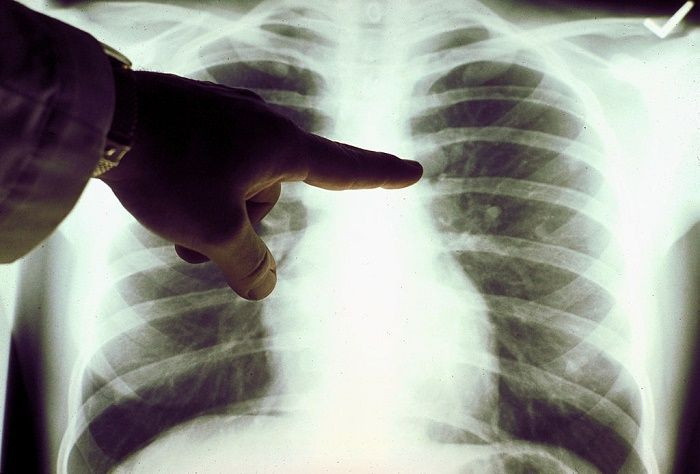Up To 50M Cancer Patients In The US Will Be Excluded From Immunotherapy Treatments: Study

Immunotherapy is an increasingly popular type of cancer treatment that a significant portion of lung cancer patients may not be able to access, finds new research published in JAMA Oncology.
The treatment, as the name suggests, targets the patient's immune system in order to train it to fight harder and smarter against cancer cells. But clinical trials have so far excluded patients who have an autoimmune disease — something about 14 to 25 percent of lung cancer patients have, according to the Harold C. Simmons Comprehensive Cancer Center.
To get a better idea of how many people that is, researchers measured the presence of autoimmune diseases in 210,500 lung patients over the age of 65. Results showed about a quarter of individuals diagnosed with lung cancer have an autoimmune disorder, the most common being rheumatoid arthritis. In second and third place was psoriasis and polymyalgia rheumatica, an inflammatory disorder that causes muscle pain and stiffness.
This means that 20 to 50 million patients in the U.S. will be excluded as immunotherapy treatments for cancer become more widely used, Tech Times reported.
According to first author Dr. Saad Khan, an assistant professor of internal medicine at the University of Texas Southwestern Medical Center, potential explanations for the rate of autoimmune diseases among lung cancer patients include being diagnosed at an older age and a prior history of smoking. That lung cancer patients are excluded from effective treatment is disappointing, to say the least, but until researchers know more, it's more of a precaution.
"The new immunotherapy treatments ... convey the risk of unpredictable, possibly severe, and potentially irreversible autoimmune toxicities affecting a variety of organs," Khan said. "With combination immunotherapy regimens, rates of these adverse events may exceed 50 percent." His colleague Dr. David Gerber added it's a treatment that requires careful monitoring.
The American Autoimmune Related Diseases Association estimates that more than 23 million Americans suffer from an autoimmune disease, which occurs when the immune system attacks and destroys healthy body tissue by mistake. There are more than 80 types of autoimmune disorders, including lupus, celiac disease, and type 1 diabetes. "Since cancer immunotherapy is growing, examining the effectiveness and toxicity of these promising treatments among patients with autoimmune diseases will be critical," Gerber said.
Lung cancer is the leading cause of cancer death in the U.S., according to the Centers for Disease Control and Prevention. It is also the second most common cancer among both men and women in the U.S. Those who are diagnosed may be older and more like to have smoked in the past, so these findings cannot be generalized to other types of cancer, Gerber explained. He added that the proportion of cases requiring immune suppression was not known. In general, though, patients undergoing immune suppression are excluded from cancer immunotherapy clinical trials.
Researchers suggest it is important to examine the prescribing patterns, effectiveness, and toxicity of immunotherapy treatments among patients with autoimmune diseases.
Source: Khan S, Pruitt S, Xuan L, Gerber D. Prevalence of Autoimmune Disease Among Patients With Lung Cancer. JAMA Oncology. 2016.



























